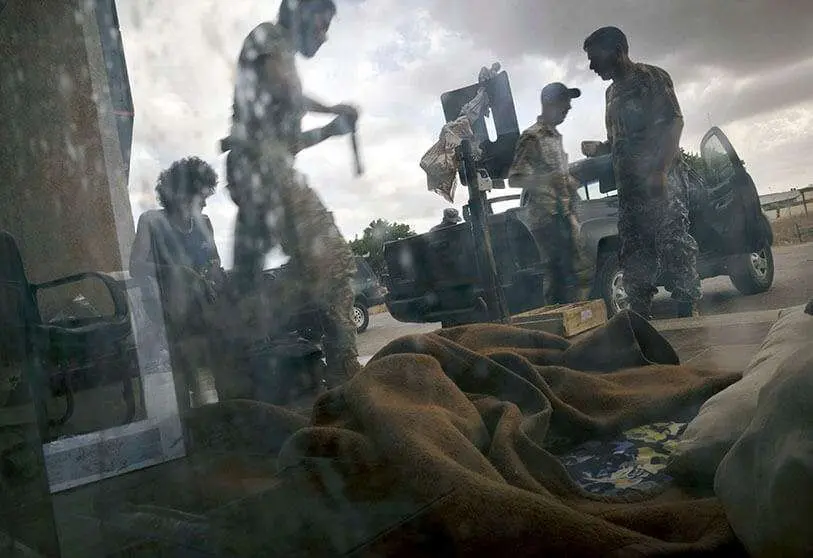Pro-Turkish mercenary casualties rise in Libya

The war in Libya is still going on. Despite constant appeals by the UN and the expansion of COVID-19, the troops of Fayez Sarraj's Government of National Accord (GNA) continue to fight against the troops of Marshal Khalifa Haftar's Libyan National Army (LNA).
Casualties are reported on both sides. The Syrian Observatory for Human Rights (SOHR) has updated the balance of casualties relating to the mercenaries that Turkey has deployed in the North African country. According to the London-based entity, 151 Syrian fighters under Ankara's command have lost their lives in the armed clashes in Libya.
In total, the number of militiamen sent by President Recep Tayyip Erdogan to the territory is estimated at around 6,000. Many of them come from the Syrian conflict, where they were already fighting as members of armed groups close to the circle of Jihadist terrorism. In addition, Turkey has been deploying professional soldiers from its own armed forces for months.
The latest casualties among the pro-Turkish militia ranks have been in the Al-Muta'sim and Sultan Murad divisions and in the Suqur al-Shamal, Al-Hamzat and Suleiman Shah brigades.
The fighting is taking place around Tripoli, the capital, still controlled by the ANG of Sarraj, and Misrata, one of the country's main port cities. In Tripoli, the front line is in the town of Salah al-Din, somewhat south of the city, and in Al-Ramlah, another town located near the airport.
Despite the fact that LNA spokesmen announced a few weeks ago that their units were just over two kilometres from the seat of power, they seem to have encountered more resistance than initially expected.
Libya has been in a situation of unmanageable internal conflict since the fall of Gaddafi in 2011. This April, it will be a year since tensions escalated. In April 2019, Haftar and the military rebels launched a military campaign to conquer the entire territory of the country. So far, they have been able to establish their seat of power in Tobruk in the east of the country. It already controls much of the territory - including its vast gas resources - and has military support from, among others, Russia and Egypt.
Against them, the GNA, which is the administration recognised as legitimate by the United Nations, resists in good measure thanks to the military support deployed in recent months by Qatar and, above all, Turkey. As he has done in Syria, Erdogan seeks to expand his influence in the eastern Mediterranean region in order to take over the resources of the area and propagate his Islamist political ideology.
Indeed, one of the reasons he is supporting Tripoli is because the Sarraj Government has the Muslim Brotherhood in its midst. This movement, which has been described as a terrorist group in many countries, has been welcomed and assisted by Turkey in its activities.
Indeed, the Libyan branch of the Brotherhood has been in constant contact with Erdogan's entourage; so much so that it has deposited significant sums of money - up to billions of dollars - in Turkish banks close to the president.








